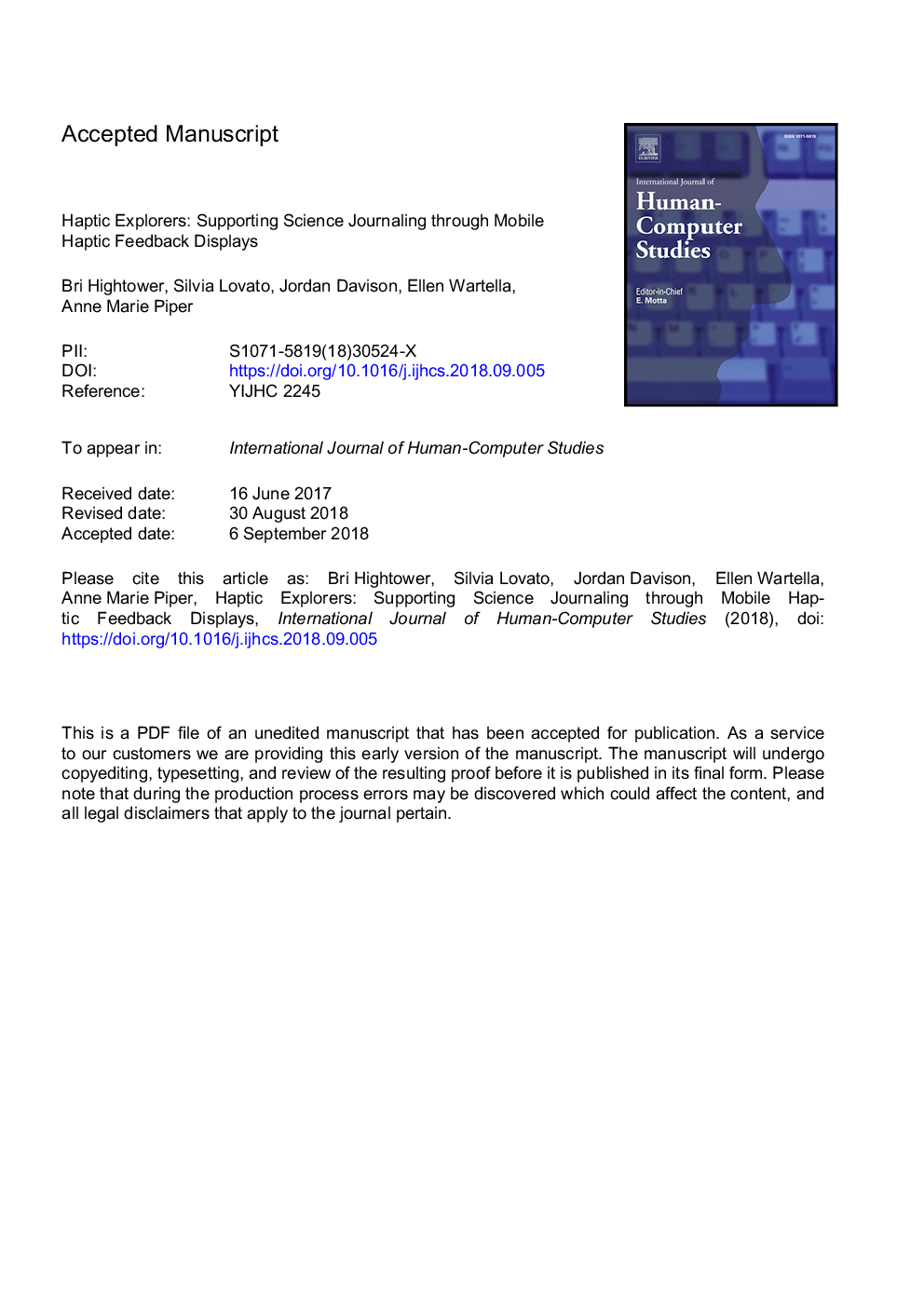| Article ID | Journal | Published Year | Pages | File Type |
|---|---|---|---|---|
| 10139247 | International Journal of Human-Computer Studies | 2019 | 43 Pages |
Abstract
Mobile devices are promising for enabling young children to document and reflect on science-related phenomena in their world. Yet, tactile information, which is central to early science learning, is lost when interacting with traditional mobile devices. We present Haptic Explorers, an application for the TPaD Phone that allows learners to capture and annotate images with audio and haptic feedback. We describe the design of this application and an evaluation with 35 children (aged 5-7) during a science summer camp. We found that children using haptic devices included more tactile descriptors when reflecting on the contents of their notebook and were on-task more often than their peers in the non-haptic group. Our results also suggest that haptic feedback is relevant for learning activities that involve concrete observation and when tactile sensory information aids in making descriptive comparisons. We discuss the potential for mobile haptic feedback displays to support early science inquiry and multimodal science talk.
Related Topics
Physical Sciences and Engineering
Computer Science
Artificial Intelligence
Authors
Bri Hightower, Silvia Lovato, Jordan Davison, Ellen Wartella, Anne Marie Piper,
